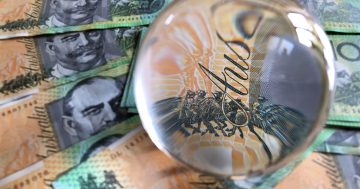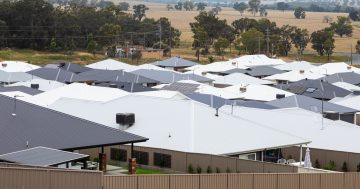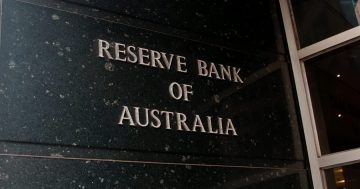Ian Verrender* looks at why superannuation losses are likely to be worse than we think after horror year on global markets.
 Even before last week’s market conflagration, the scene was looking ugly.
Even before last week’s market conflagration, the scene was looking ugly.
While it may have come as a shock to many, superannuation balances — which ballooned last year through the worst recession in more than a century — had already dipped into the red by late last month just as the financial year was drawing to a close.
After last week’s gravity pull from rising interest rates, the rout on global stock markets has turned that bleak prospect into a painful reality.
Best now to mentally prepare for a significant decline in your retirement savings when that June 30 statement hits the inbox.
Even those who have erred on the side of caution — with a more-conservative superannuation option — are likely to see significant declines.
The only ones who will be spared are those with the foresight — or good luck — to switch to cash at the beginning of the year.
Until last week, it somehow had appeared that global monetary authorities had managed to engineer a major downturn on financial markets — without the usual accompaniment of panic and despair.
No more.
A mood of despondency has settled over financial markets and — unlike previous downturns — there appears to be little room to hide.
Everything of late has been falling.
That’s made life extremely difficult for investors, home-spun and professional alike.
And it’s likely to continue.
After more than 30 years of declining interest rates and minimal inflation, the world seems poised to enter a new era — or maybe re-enter an old one — of sluggish growth, escalating costs and more expensive capital.
It’s a world that many investors have never before experienced.
Australia has been an outlier on the global stage this year.
While Wall Street has been grinding lower since January, higher commodity prices — courtesy of Vladimir Putin’s war on Ukraine — have kept financial markets news off the front pages here.
Until now.
Why were we in the red before this?
After Australians collectively took a bath in the wash-up from the global financial crisis, our big superannuation funds reviewed their investment strategies.
Most figured out they had way too much invested in Australian shares, that their portfolios were too closely tied to the local stock market.
So, they actively diversified into offshore shares, property, infrastructure, bonds and other alternative assets in a bid to reduce the volatility of your fund’s performance.
The idea was that, if the bottom falls out of one asset class, it should be offset by others that perform well.
Even after that realignment, however, a normal balanced fund would have about 20 per cent of your savings invested in the local market.
Luckily, that bias was working well until April because our stock market was shrugging off the global woes.
Most other assets, however, were doing rather badly and, unusually, all at once.
The sudden re-emergence of inflation — and the drastic rate hikes from central bankers to tame it — temporarily junked the theory around diversification.
And, now, local stocks have joined the plunge.
International shares, which make up about 30 per cent of most superannuation portfolios, have been on the slide since Christmas.
If you’ve been stunned by the sudden drop in our market last week — which has helped shave 15 per cent from April’s peak — consider this.
Wall Street is down 23 per cent since January.
The technology-heavy Nasdaq, which has driven the stellar performance on Wall Street for more than a decade, is off 32 per cent.
As for cryptocurrency, well, don’t even go there.
At last glance, the entire market was in chaos, with overall losses now more than 70 per cent from the peak.
Bonds to be more Alan than James
This may come as a shock, but the driving force behind all investments is not the stock market.
It is bond markets.
Essentially, bonds are IOUs.
Both governments and corporations issue them when they raise debt, usually with the promise of a set interest or coupon rate for a given period of time, say 10 years.
Once issued, they are traded on open markets that dwarf stock markets.
Vast trillions of dollars are invested in them, and the sheer weight of that money makes them the foundation, the bedrock that dictates performance in everything, from interest rates to property, stocks and currencies.
In fact, Bill Clinton’s advisor, James Carville — the man who famously coined the phrase “It’s the economy, stupid” — is just as famous for this line: “I used to think that, if there was reincarnation, I wanted to come back as the President or the Pope.
“But now I want to be the bond market because you can intimidate everybody.”
The past year has been truly intimidating.
It has been the worst year on record for US government bonds, with losses of 12 per cent.
To put that into context, the second-worst year was 1984, when they shed 2.9 per cent.
Because governments rarely default, bonds are considered to be risk-free.
That’s why they attract so much money and so much attention.
For the past 40 years, as interest rates have declined, they have delivered huge gains.
Being risk-free, however, doesn’t mean you can’t lose money on them as many big professional funds managers suddenly have discovered.
There’s an inverse relationship between interest rates and bond prices.
If punters think rates will fall, they bid up bond prices.
And that’s been the one-way bet for more than 40 years.
Suddenly, however, everything has been thrown into reverse.
Once in a half-century storm for US bonds
So, what does this have to do with you?
You’ve got US bonds in your superannuation fund portfolio.
In any balanced fund, about 10 per cent of your savings are in what’s known as fixed-interest investments.
Because they are — or at least were —considered to be relatively safe, there are fewer of them in higher-risk options such as growth funds.
But, if you have opted for safer alternatives such as a stable or conservative option, around a quarter of your investment is sitting in bonds … which have been shaken and stirred.
So, where to now?
Ask five different economists and you’ll get 10 different answers. On the one hand …
However, it is difficult to see any quick market recovery any time soon.
The surge in stock prices that rapidly followed the crash in February 2020 came about because central banks, led by the US Federal Reserve, not only slashed interest rates to zero, they also printed money like there was no tomorrow.
They’d been doing it for a decade — ever since the GFC wreaked havoc — and it hadn’t even looked like firing-up inflation.
So, during the pandemic, central banks — including our very own RBA — jumped in on the action.
In the past few years, each time the Fed tried to withdraw some of that printed cash, stocks tanked and the Fed nervously retreated.
Now, with inflation on the march, it has no option.
It is going to start aggressively pulling that cash back out to take the heat out of the economy.
And, since the pandemic pump, it now has an eye-watering $US9 trillion ($13 trillion) to retrieve.
That, effectively, will amplify the impact of rate hikes.
Instead of buying up US government bonds — as it was doing during the GFC and pandemic — it will be selling them, mopping up cash and pushing interest rates higher.
That will also cause bond prices to continue tanking, which will continue to weigh on all asset markets and on your superannuation fund.
Until last week — when the US Fed rammed through a triple rate hike in one go — it seemed as if the retreat on financial and property markets would be relatively orderly.
However, with another triple hike expected next month — followed by doubles in September and November and singles in December, January and March — orderly isn’t the adjective that readily springs to mind.
The only thing that might cause the Fed to back off and chill out a little is the prospect of recession, which is not really a comforting scenario.
*Ian Verrender is the ABC’s Business Editor.
This article first appeared at abc.net.au.











